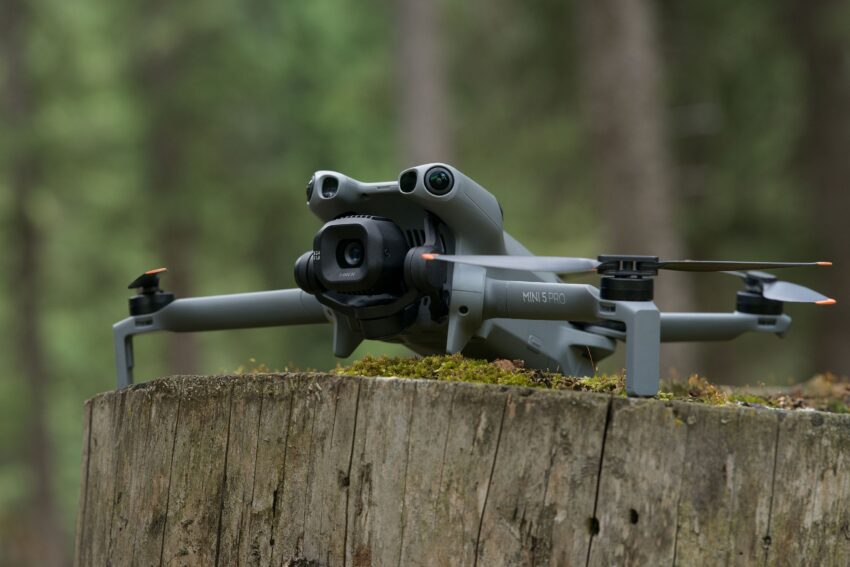
pentagon can call dji a chinese military The U.S. District Court has ruled that the Department of Defense (DoD) can classify DJI as a “Chinese Military Company,” a decision that has significant implications for the drone manufacturer and its operations in the United States.
pentagon can call dji a chinese military
Background of the Case
Last October, DJI, a leading drone manufacturer based in China, initiated legal action against the U.S. Department of Defense. The company sought to challenge its designation as a “Chinese Military Company,” arguing that this label unfairly stigmatized its business and jeopardized its operations in the U.S. market. DJI contended that the classification was not only damaging to its reputation but also posed risks to its ability to engage in commerce, particularly as it faced increasing scrutiny amid rising geopolitical tensions between the U.S. and China.
Court Ruling Overview
In a recent ruling, U.S. District Court Judge Paul Friedman stated that while he could not definitively conclude that DJI is “indirectly owned by the Chinese Communist Party,” he acknowledged the DoD’s broad discretion in determining which companies should be included on the list of Chinese military entities. This ruling underscores the complexities involved in assessing corporate affiliations and the implications of national security concerns.
Key Findings of the Court
Judge Friedman highlighted several critical points in his ruling:
- The court found sufficient evidence to support the claim that DJI is recognized and supported by the Chinese government, labeling it as a “military-civil fusion contributor.” This designation refers to companies that engage in activities that blur the lines between military and civilian sectors, a concept that has gained traction in discussions about China’s industrial policy.
- Furthermore, the judge noted that Chengtong, a state-sponsored entity, holds “some unspecified ownership stake” in DJI. This connection was deemed significant enough to justify the DoD’s classification of DJI as a Chinese Military Company under section 1260H of the relevant regulations.
- While the court rejected several of the DoD’s claims due to insufficient evidence, it acknowledged that the designation as a “National Enterprise Technology Center” by China’s National Development and Reform Commission provided DJI with substantial financial benefits, including cash subsidies and tax incentives. This designation further bolstered the argument for its classification as a military-affiliated entity.
Comparative Analysis with Other Companies
DJI attempted to argue that other companies, such as the Chinese arms of Volkswagen and Nokia, were not subjected to the same scrutiny despite possessing similar attributes. However, Judge Friedman maintained that the DoD has the discretion to include or exclude companies from the list based on its assessments. This ruling raises questions about the consistency of the criteria used to classify companies and the potential for selective enforcement.
Implications for DJI
This ruling represents a significant setback for DJI, which is already facing a series of challenges in the U.S. market. The company is bracing for an impending import ban on new products scheduled for December, which could severely impact its ability to sell drones and related technologies in one of its largest markets. The situation has been exacerbated by U.S. customs halting many consumer drone shipments, leading to empty retail shelves and a surge in scams targeting consumers.
Market Reactions
The ruling has elicited mixed reactions from various stakeholders. Industry analysts suggest that the classification could deter potential customers from purchasing DJI products due to concerns over national security. This perception could further diminish DJI’s market share in the U.S., where competition from domestic drone manufacturers is intensifying.
DJI’s Response and Future Options
In response to the ruling, DJI expressed disappointment over the court’s decision to uphold its designation as a Chinese Military Company. A spokesperson for the company, Daisy Kong, stated, “While DJI is pleased that the Court agreed with DJI and rejected most of DoD’s purported justifications for listing DJI, we are disappointed that the Court nonetheless upheld the listing.” The company is currently evaluating its legal options in light of this decision, indicating that an appeal may be on the table.
Kong further emphasized DJI’s commitment to innovation and customer service, asserting that the company remains dedicated to providing reliable and accessible products to its U.S. customers. “DJI’s success is built on relentless innovation, and the market continues to choose our products for their reliability, safety, and accessibility,” she stated. The company is advocating for fair competition in the U.S. market, arguing that such an approach benefits not only the economy but also the operators who rely on its technologies for various applications, including public safety.
Broader Context of U.S.-China Relations
This ruling occurs against the backdrop of escalating tensions between the United States and China, particularly concerning technology and national security. The U.S. government has increasingly scrutinized Chinese companies, particularly those in the technology sector, citing concerns over espionage and the potential for state influence. This scrutiny has led to a series of restrictions and bans on Chinese technology firms, impacting their ability to operate in the U.S. market.
Potential for Appeals and Future Legal Battles
As DJI considers its next steps, the possibility of an appeal looms large. Legal experts suggest that the company may face an uphill battle, given the court’s acknowledgment of the DoD’s discretion in making such classifications. However, the ruling also leaves room for DJI to argue against the specific rationale used to uphold its designation, particularly in light of the court’s rejection of other claims made by the DoD.
Impact on the Drone Industry
The implications of this ruling extend beyond DJI, potentially affecting the broader drone industry. As U.S. regulations continue to evolve in response to national security concerns, other companies may find themselves facing similar scrutiny. This could lead to a chilling effect on innovation and investment in the drone sector, as companies weigh the risks of operating in a contentious regulatory environment.
Conclusion
The court’s decision to allow the DoD to classify DJI as a Chinese Military Company marks a pivotal moment for the company and the broader drone industry. As DJI navigates the challenges posed by this ruling and the impending import ban, the outcome of its legal options will be closely watched by industry stakeholders and policymakers alike. The evolving landscape of U.S.-China relations will undoubtedly continue to shape the future of technology companies operating in both markets.
Source: Original report
Was this helpful?
Last Modified: September 27, 2025 at 1:42 am
0 views















